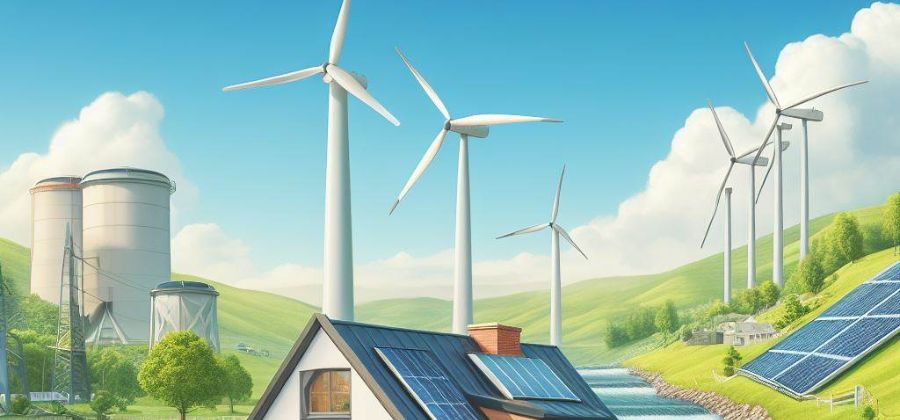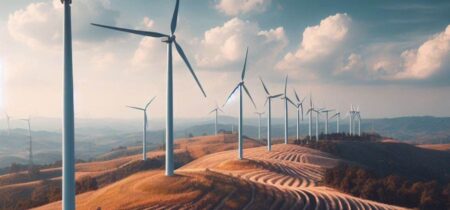
A new report by the International Energy Agency (IEA) has revealed the global shift to clean energy and the challenges of reducing fossil fuel use. The report predicts that renewables will provide half of the world’s electricity by 2030, but warns that emissions are still too high to prevent temperatures rising above 1.5C, a key threshold to avoid the worst impacts of climate change.
The report, titled Net Zero by 2050: A Roadmap for the Global Energy Sector, says that investment in fossil fuels needs to be cut in half, and that governments, companies and investors need to support clean energy transitions rather than hindering them.
The report praises the significant progress made in expanding renewable energy and supporting consumers with the shift to electric vehicles and heat pumps instead of gas boilers. The report says that the growth in clean energy and technologies is “impressive”. The share of electric cars in the market increased from 4% in 2020 to 20% in 2023.
The report recognises that oil and gas will continue to play a role in the world’s economy and that maintaining investment is “essential”. But it says that current levels of funding are double what they should be. The report criticises the decisions of some governments to open new oil fields, saying that “claims that oil and gas represent safe or secure choices for the world’s energy and climate future look weaker than ever”.
The report cites an example of a controversial oil field off the coast of Scotland, which was given the go-ahead earlier this year despite environmental objections. The project, known as Cambo, is expected to produce 170 million barrels of oil over its lifetime, equivalent to 16 million tonnes of carbon dioxide emissions.
The report quotes the IEA Executive Director Fatih Birol, who says that “the transition to clean energy is happening worldwide and it’s unstoppable. The timing is the only uncertainty, not the outcome – and we would all benefit from a faster resolution.
According to the report, a representative of the UK Department of Energy Security and Net Zero stated that the independent Climate Change Committee acknowledged that oil and gas would still play a role in the UK’s energy transition to net zero. The representative also claimed that “the UK is at the forefront of addressing climate change, having cut emissions by nearly 44% since 1990 – more rapidly than any other large economy”.
The report explains that the world’s reliance on fossil fuels means that we are still on track to be facing a global average temperature rise of 2.4C by 2100. The report compares this with the pledge made in 2015 when political leaders agreed on limiting temperature rises to “well below” 2C and to make every effort to keep it under 1.5C.
The report says that the report sees huge potential for solar panels in the future energy mix, as they are becoming cheaper and more efficient. The report says that solar power could provide more than 40% of global electricity generation by 2050.
The report also highlights the need for more innovation and investment in other clean energy technologies, such as hydrogen, carbon capture and storage, and biofuels. The report says that these technologies could help reduce emissions from hard-to-abate sectors such as industry, transport and buildings.
The report concludes by saying that the report is one of several major publications ahead of the COP26 climate summit in Glasgow next month, where countries are expected to present their updated plans to cut emissions. The report says that “the stakes could not be higher” for the summit, as it will determine whether the world can achieve net zero emissions by 2050 and limit global warming to 1.5C.













